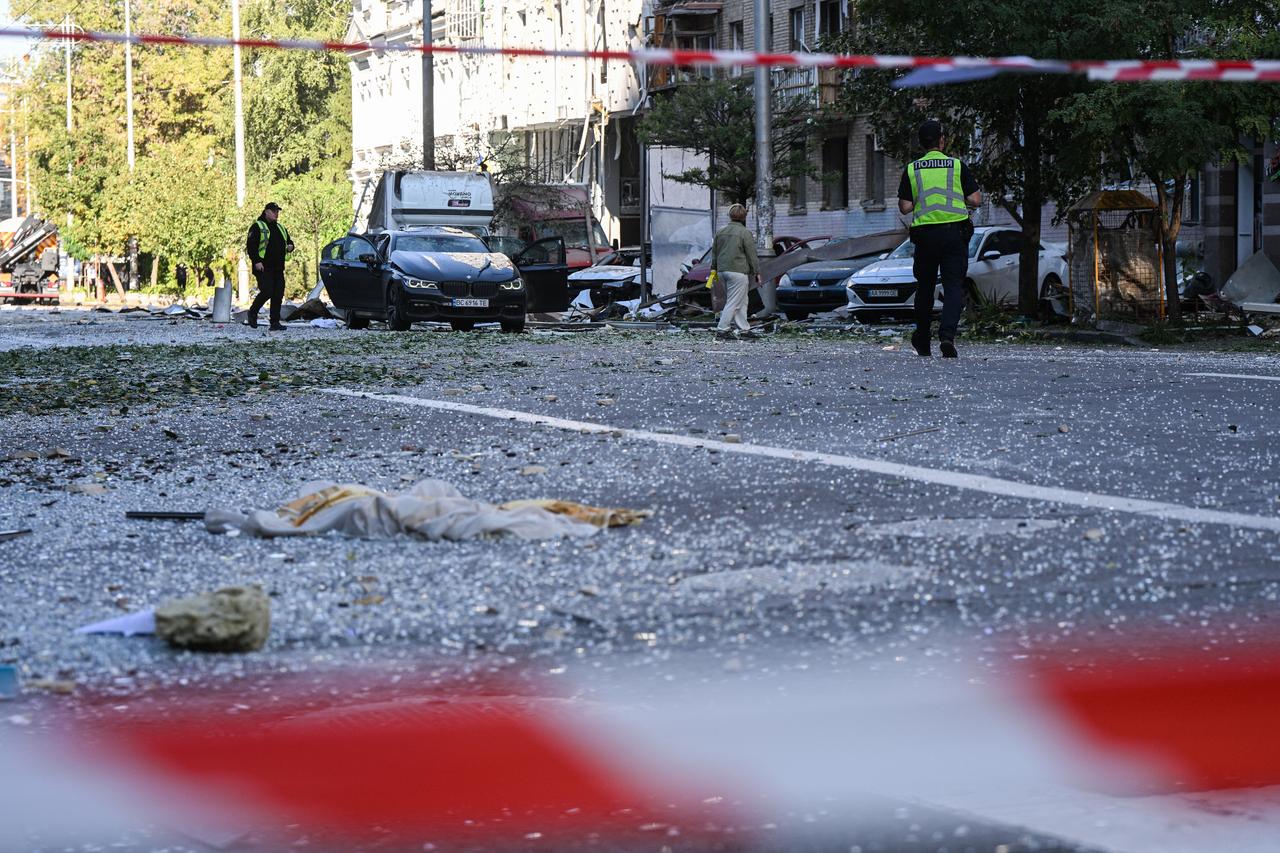
Russian missiles and drones killed at least 15 people, including four children, in the Ukrainian capital early Thursday, with strikes damaging European Union and British diplomatic buildings in what President Volodymyr Zelenskyy called Moscow's rejection of peace negotiations.
The attack, one of the deadliest on Kyiv, blasted a five-story crater in an apartment block in the Darnytskyi district, ripping the building in two.
Ukraine's air force said Russia fired 629 drones and missiles overnight, making it the second-largest barrage of the war.
"This is a horrific and deliberate killing of civilians," Zelenskyy said on social media.
"The Russians are not choosing to end the war, only new strikes."
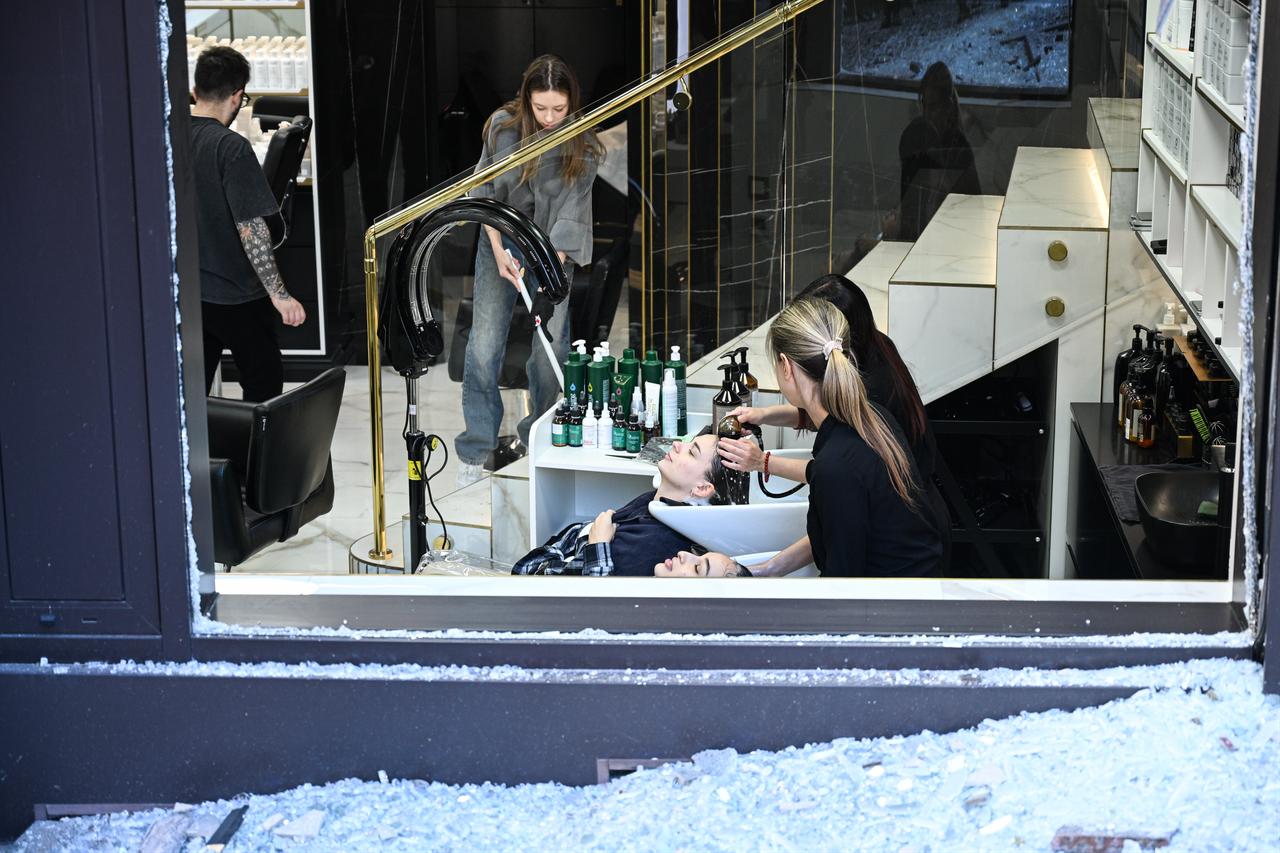
The overnight assault damaged the EU delegation offices in Kyiv, with two missiles hitting within 50 meters of the building in 20 seconds, according to European Commission President Ursula von der Leyen.
"It shows that the Kremlin will stop at nothing to terrorize Ukraine, blindly killing civilians, men, women, and children, and even targeting the European Union," von der Leyen told reporters in Brussels.
The British Council building also sustained severe damage, prompting U.K. Foreign Minister David Lammy to summon the Russian ambassador.
"Putin's strikes last night killed civilians, destroyed homes, and damaged buildings, including the British Council and EU Delegation in Kyiv," Lammy said.
EU foreign policy chief Kaja Kallas announced the bloc was summoning Russia's envoy in Brussels, warning, "No diplomatic mission should ever be a target."
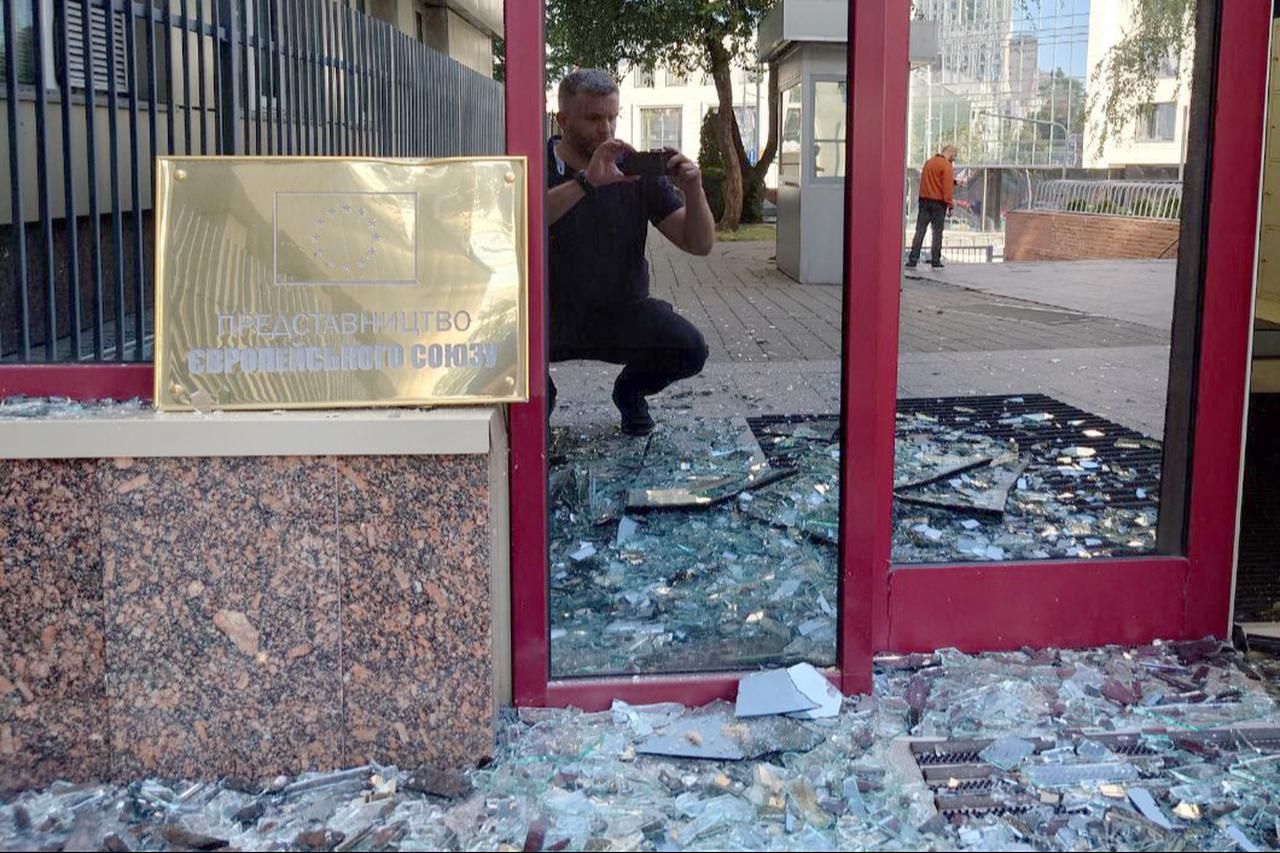
Rescue workers sifted through smoldering rubble Thursday as officials warned several people were believed trapped under collapsed buildings. The Kyiv City Prosecutor's Office reported damage in eight districts across the capital.
"If I had gone to the shelter a minute later, I would not be here now; I would have been buried," said Andriy, whose apartment was destroyed.
"I came out, could not hear anything, there was fog everywhere, and my left eye was completely covered in blood."
Galina Shcherbak, near one of the strikes, told Agence France-Presse (AFP), "Glass was flying ... we were screaming when the bombs went off."
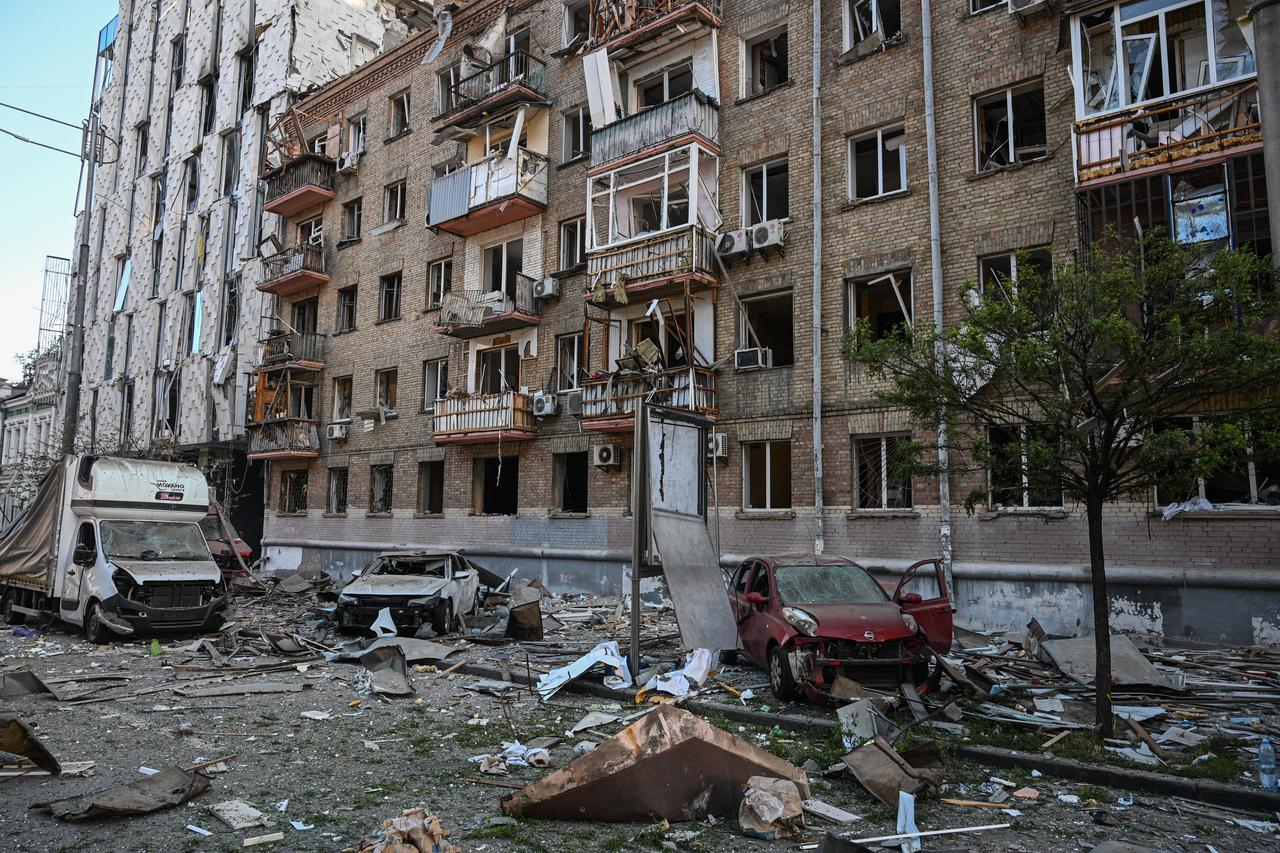
European leaders unanimously condemned the attacks, with French President Emmanuel Macron calling them "terror and barbarism."
"629 missiles and drones in one night on Ukraine: this is Russia's idea of peace," Macron wrote on X.
British Prime Minister Keir Starmer accused Russian President Vladimir Putin of "sabotaging hopes of peace" with the strikes, adding, "This bloodshed must end."
German Foreign Minister Johann Wadephul said the attacks "cannot remain without consequences," referring to upcoming EU foreign minister meetings in Copenhagen on Friday and Saturday.
The Kremlin insisted it targeted military sites and remained interested in diplomacy, though strikes would continue.
"The Russian armed forces are fulfilling their tasks," Kremlin spokesman Dmitry Peskov told reporters. "They continue to strike military and military-adjacent infrastructure facilities."
Peskov added, "At the same time, Russia remains interested in continuing the negotiation process. The aim is to achieve our goals through political and diplomatic means."
The attack comes as diplomatic efforts remain stalled following a summit between Putin and U.S. President Donald Trump in Alaska earlier this month.
Moscow has rebuffed initiatives for a swift end to fighting, including pressure for a Zelenskyy-Putin meeting.
Russia demands Ukraine cede more territory and renounce Western military support as conditions for any peace deal—ultimatums ruled out by Kyiv.
"For the spurning of the ceasefire and for the constant Russian attempts to weasel out of negotiations, new strong sanctions are needed," Zelenskyy said. "All deadlines have already been broken, and dozens of opportunities for diplomacy have been ruined."
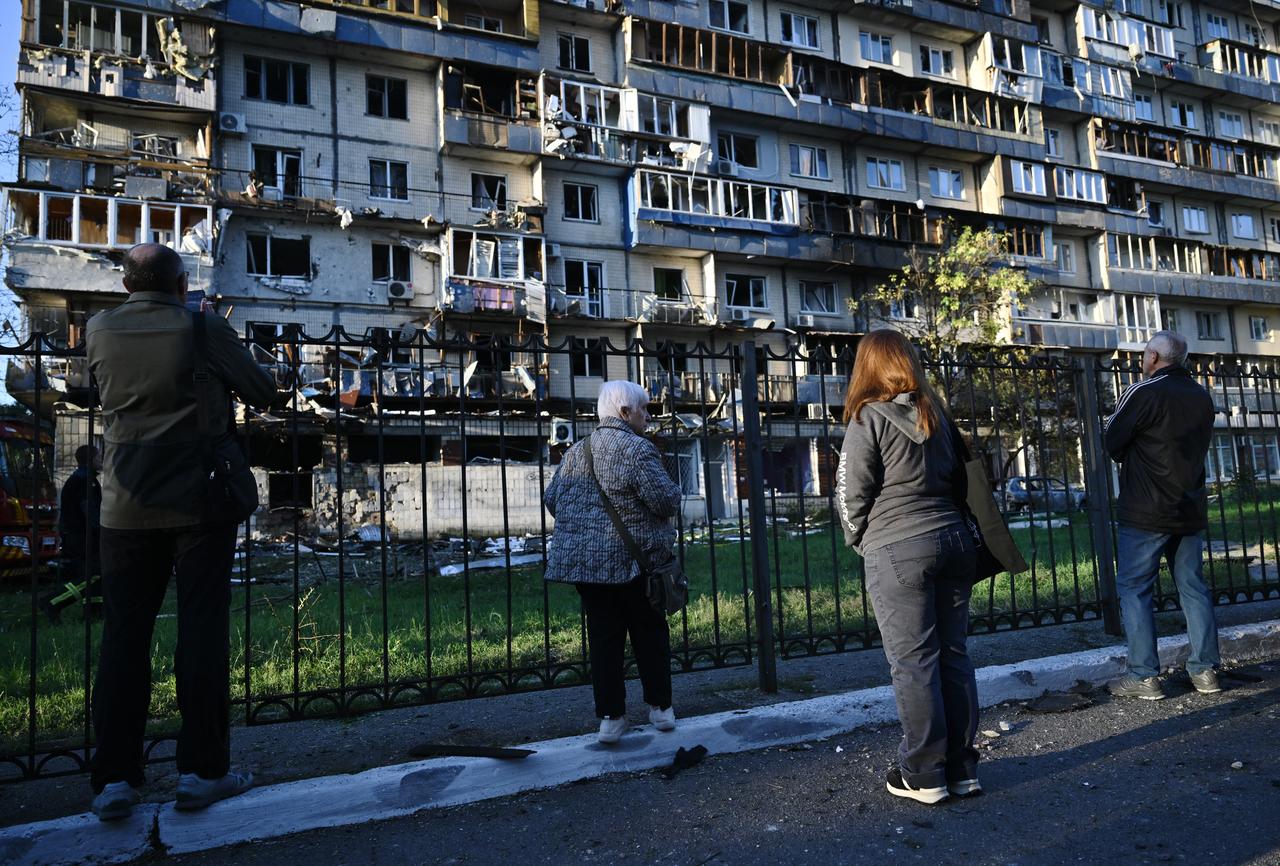
Von der Leyen announced the EU would introduce a 19th package of "hard, biting sanctions" against Moscow and advance work on using frozen Russian assets for Ukraine's defense and reconstruction.
EU countries currently use interest from frozen assets to help arm Ukraine and finance post-war reconstruction, generating between 2.5 billion and 3 billion euros annually.
The commission president said she would travel from Friday to seven Eastern European countries "that are strengthening and protecting our external borders with Russia and Belarus."
Ukraine reported hitting two large Russian refineries in overnight retaliatory strikes, which it calls fair retaliation. Russian forces claimed Thursday they captured another small settlement in the eastern Donetsk region.